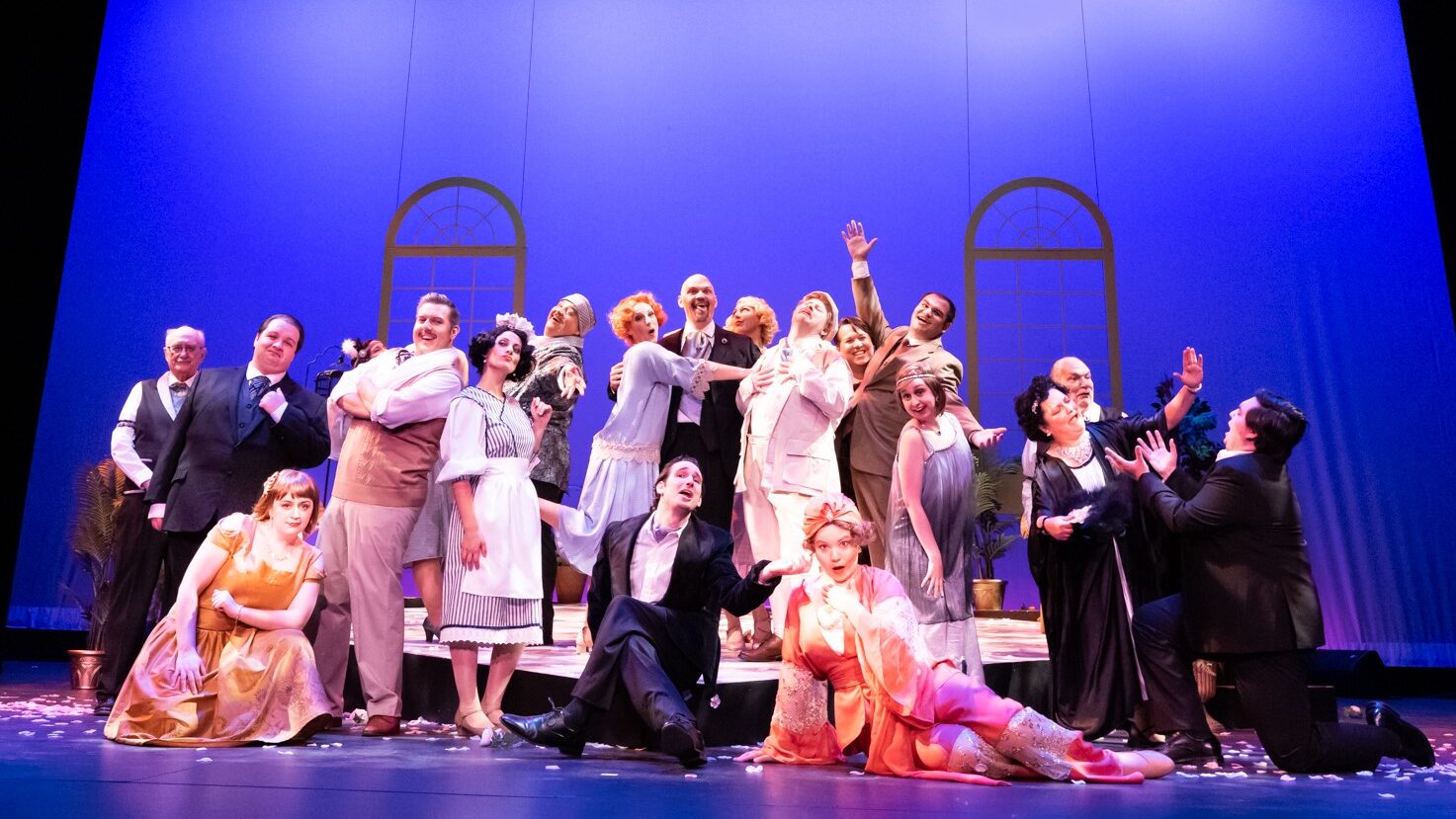New Opera St. Louis plans to warm up winter
One recent summer in Philadelphia, soprano Gina Galati and her musical friends bemoaned the lack of opera in St. Louis during winter months.
![]() Instead of just complaining, Galati (right), who had never directed before, assembled a group of singers from scratch in August 2007. She excited donors, who gave money and their homes for singers’ residence. They would perform Rigoletto in February 2008.
Instead of just complaining, Galati (right), who had never directed before, assembled a group of singers from scratch in August 2007. She excited donors, who gave money and their homes for singers’ residence. They would perform Rigoletto in February 2008.
“I looked into setting up a nonprofit and got support from the community,” Galati said.
And she did. From one conversation and one idea sprung New Opera St. Louis , the company that would produce Rigoletto.
But where would they perform Rigoletto? Galati had been a member of St. Ambrose on the Hill, and found the venue suitable. She uses space above the kitchen in her father’s restaurant, Dominic’s, as the group’s office.
After two weeks of rehearsal, sales for Rigoletto skyrocketed. Galati said she turned down 500-600 people who exceeded the church’s seating capacity.
“Our production was a big success so we decided to try and continue and we figured out a name and a logo,” Galati said. “People really loved coming to our production. It was a good way to bring opera to the masses and introduce it to people who have never seen it before.” Now, Galati serves as New Opera’s artistic director; Scott Schoonover, artistic director and conductor of Union Avenue Opera, works as musical director; Marc Astafan is stage director.
“We are a new company but we do very high quality shows,” said administrative director Andrew Martin. “All of our singers are great singers. They’re all active performers at different theaters across the world.”
New Opera’s spontaneous start mirrors that of opera in St. Louis. According to Maggie Stearns, a longtime press representative of Opera Theatre of St. Louis, opera came in a rudimentary form in the 1950s and ’60s. Washington University intended to start a program, and incorporated the name Opera Theater. But the initiative didn’t really get off the ground.
Years later, in 1975, opera impresarios produced The Marriage of Figaro in a gymnasium. “They had to close off one end of the gym,” Stearns said. “It was a spectacularly hot St. Louis night, and the place was indescribably hot. Everybody was fanning themselves. We went outside and stood around in the unspeakable heat. It was amazing that nobody went home.”
Figaro showed Webster University president Leigh Gerdine and his friends that this audience wasn’t going away. It was time for St. Louis to have an opera company. He brought in Richard Gaddes, found a theater for summer opera festivals, and built upon the already-incorporated name Opera Theatre of St. Louis .
In 1995, Scott Schoonover formed Union Avenue Opera — which has Carmen in production through Aug. 30 — as an alternate company.
But still, St. Louis winters had been barren to opera enthusiasts. Employees at New Opera say they will fill the void. “It’s very gratifying for us that there is now a climate in which opera can flourish and it’s really very, very wonderful,” Stearns said. “Opera is becoming attractive to new and slightly younger audiences. This is another example of how the combination of music and drama is so seductive. These are very exciting times for opera.”
Galati said that she intends to capitalize on the new wave of opera-goers by creating a user-friendly experience. “I noticed that a lot of people came to our production that had never been to an opera and never enjoyed it,” Galati said. “It’s important to produce things that are easier for people to understand and are fun. I encourage our singers to talk to people at benefits and be involved with our patrons. I want our singers to be part of the community.”
This summer, New Opera organized four-course meals at Dominic’s that featured musical selections. The company’s next production will be Samson and Delilah this November at a synagogue, Brith Shalom Kneseth Israel.
Galati said that the venue dictated the choice of production. Once she found the large and “beautiful space” in the synagogue, she thought that due to the story’s origins, Samson and Delilah would be apropos for the Jewish community. “It’s one of the oldest stories out there, about lies and deception,” Galati said.
But the spectacle doesn’t stop with the opera itself. To make the production an engaging cultural experience, the company will conduct a contest for children to draw scenes from the story. The ones who have the best drawings will be extras in the opera and have their art displayed. High school children will participate in an essay contest.
Eventually, Galati said she would like to build an opera house on the Hill. “Our biggest problem has been to find places where we can perform. We don’t really have a home but we’ll get one,” Galati said.
